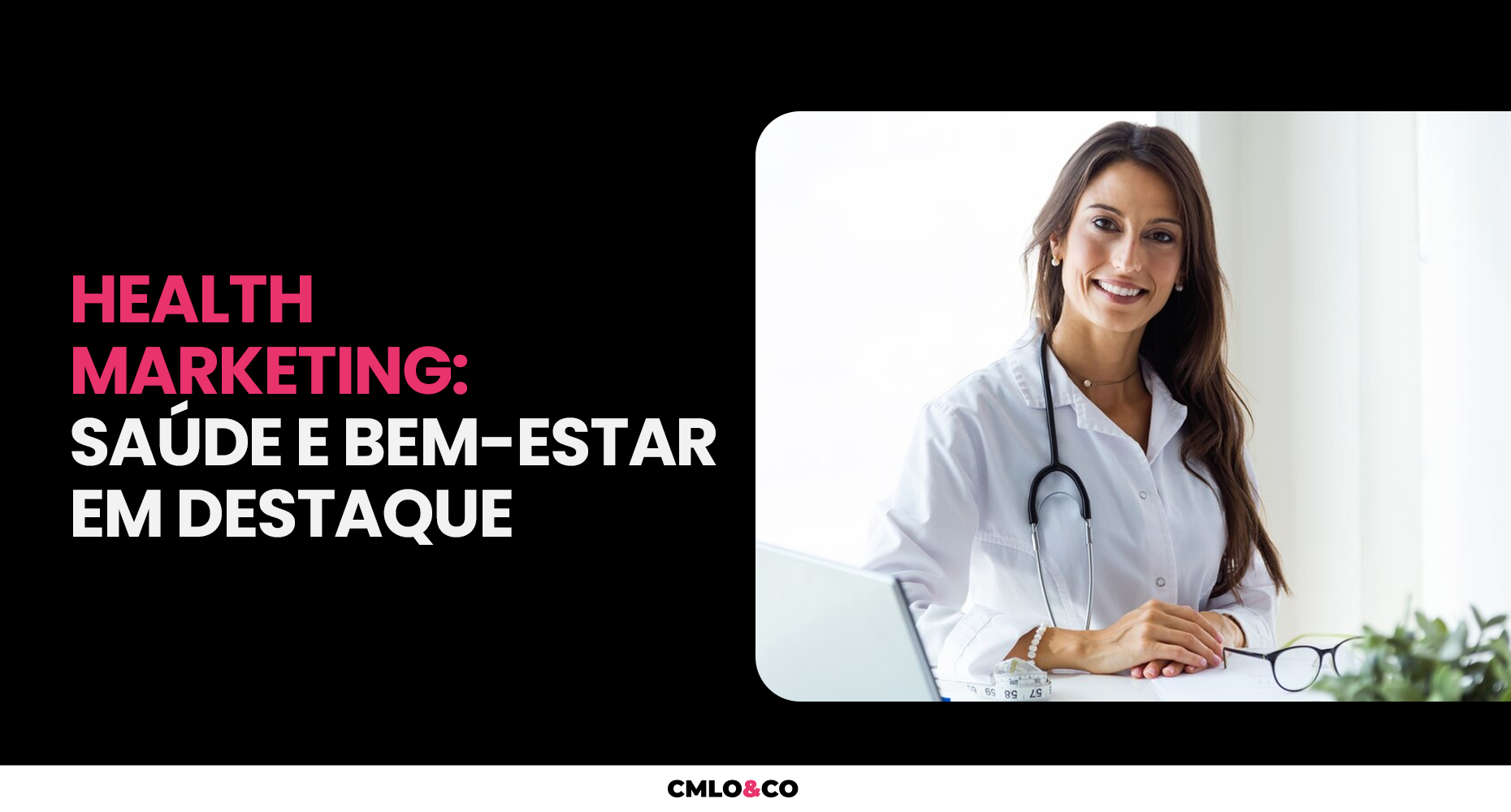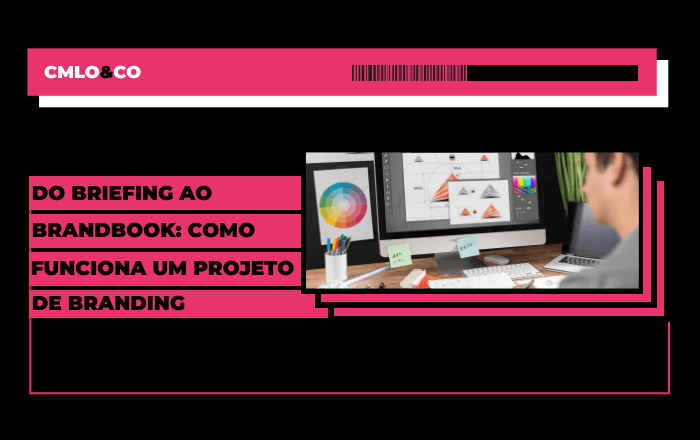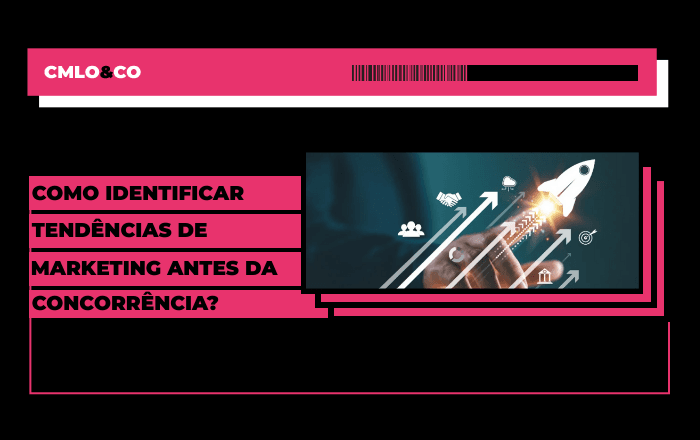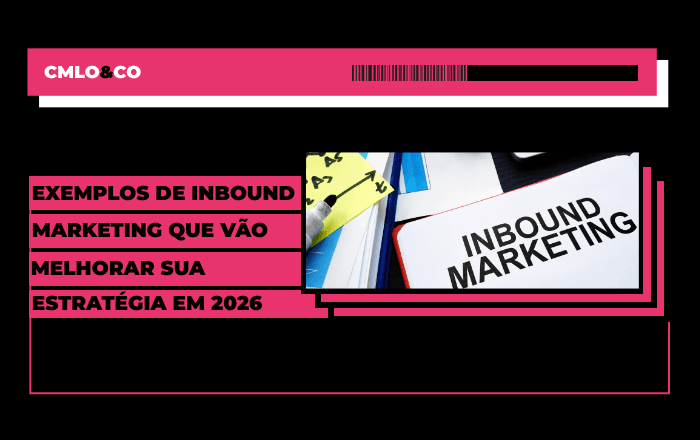In a world where health and well-being are growing priorities, the health marketing, or healthcare marketing, plays a crucial role in disseminating important information and promoting services and products related to the health area.
Contrary to popular belief, this branch of the marketing is not limited to promoting products or services, but seeks to educate, inform and engage the public on vital issues related to health and quality of life.

In this article, you will learn about the concept of health marketingand how it can be applied effectively by clinics, hospitals, medical practices and laboratories, boosting business in an ethical and efficient manner. Follow along!
What is Health Marketing?
Also called health marketing or healthcare marketing, it is a strategic approach that seeks to promote health and well-being through marketing initiatives.
The concept encompasses a variety of activities, from creating advertising campaigns to producing educational and informative content.
Its aim is to empower individuals to make good choices about their health and lifestyle, as well as promoting services and products that contribute to a healthier life.
Who does it apply to?
Although it is associated with medical professionals, healthcare marketing applies to a wide range of professionals and organizations in the sector, including:
- Medical, dental, nutrition, psychology and beauty clinics and practices, among others;
- Public and private hospitals;
- Laboratories;
- Pharmacies;
- Other health professionals.
In other words, regardless of size or specialty, any company or professional wishing to promote health-related services or products can benefit from the strategy.
What is it for?
Health marketing serves a variety of purposes, including:
- Promoting products or services in the medical field, publicizing new treatments, procedures or medical equipment available;
- Educating consumers about health and quality of life by providing information on disease prevention, healthy habits and general well-being;
- Improving customer relations, building trust and loyalty by providing useful and relevant information;
- Offering relevant information on health and medicines, clarifying common doubts about medicines, treatments and health conditions;
- Strengthen the brand with brandingcreating a solid and positive brand identity that matches the target audience.
Importance of Health Marketing
Health marketing plays a fundamental role in promoting the health and well-being of society at various levels.
Its importance extends from disseminating crucial information on disease prevention and treatment to promoting healthy habits and accessibility to medical services.
Below, we highlight some points that show the relevance of medical marketing:
1. education and awareness
One of the main functions of health marketing is to educate and make people aware of health issues.
By providing accurate and relevant information, the approach empowers individuals to make the best decisions about their health and lifestyle, such as healthy diets, physical activity, disease prevention, early diagnosis and available treatments.
It is worth noting here that proper education can help reduce the incidence of preventable diseases and improve the health outcomes of the population in general.
2. Promoting adherence to treatment
Healthcare marketing plays a crucial role in promoting adherence to medical treatment.
This is because the strategy involves providing information about the benefits and risks of treatments. But it also addresses the concerns and challenges that patients may face when following the prescribed treatment plan.
In this way, effective medical marketing actions can help raise awareness of the importance of adherence to treatment. This improves health outcomes and reduces hospital readmission rates.
3. Disease prevention and health promotion
One of the most important areas of health marketing is disease prevention and health promotion. This includes vaccination campaigns, health screening, healthy lifestyle programs and incentives to adopt preventive behaviors.
By encouraging healthy practices and facilitating access to preventive services, the strategy can help reduce the incidence of chronic diseases and improve the population's quality of life.
4. Reducing stigma and discrimination
Health marketing also plays an important role in reducing the stigma and discrimination associated with certain health conditions.
It therefore seeks to promote awareness campaigns and education programs aimed at a more empathetic and inclusive understanding of mental health issues, chronic illnesses and physical disabilities.
By combating stigma and discrimination, health marketing helps to create a more welcoming and supportive environment for all members of society.
5. Community engagement
Finally, marketing for health can contribute to community engagement in health issues. This includes creating partnerships with local organizations, community leaders and advocacy groups to develop and implement community health programs.
Community engagement is essential to ensure that health interventions are culturally appropriate, socially acceptable and accessible to all members of the community.
Given all the above, we can conclude that health marketing plays a vital role in promoting the health and well-being of society in general.
From education and awareness-raising to promoting adherence to treatment and disease prevention, medical marketing has the potential to significantly improve the health outcomes and quality of life of individuals and communities around the world.

Best Health Marketing strategies for clinics, hospitals, practices and laboratories
In the competitive and constantly evolving landscape of the health sector, clinics, hospitals, practices and medical laboratories face the challenge of standing out and attracting potential patients.
To achieve this goal and promote your services effectively, it is important to adopt well-planned strategies adapted to the specific needs of each type of establishment.
Here are some of the best health marketing strategies for healthcare establishments.
1. Creating professional websites and blogs
One well-designed and informative website is an essential tool for any healthcare establishment.
After all, it provides important information about the services offered, medical specialties and professional staff, and can include educational resources such as blog articles on relevant health issues.
It's worth noting that blogs that are frequently updated with quality content can help attract organic traffic to the site. This, in turn, improves the online visibility of the clinic, hospital, practice or laboratory.
2. Mobile application development
With the increased use of mobile devices, developing a mobile application dedicated can be an effective strategy for improving patient care and engagement.
A well-designed app can offer a variety of useful features, such as online appointment booking, access to test results, reminders to take medication, personalized health tips and much more.
Developing an app for your healthcare establishment will make life easier for patients. But it goes beyond that. It will also strengthen the relationship between your business and your target audience.
3. Visual identity and graphic design
A strong and consistent visual identity is essential for creating a positive and memorable impression in the minds of patients. This includes elements such as the logo, colors, typography and visual style, which should reflect the mission, values and personality of the clinic, hospital, practice or laboratory.
One professional graphic design in marketing materials, such as brochures, business cards, banners and promotional materials, helps to convey professionalism and trust to potential patients.
4. Strategic presence on social networks
The social networks play an increasingly important role in communication and engagement with the public.
Therefore, healthcare establishments can take advantage of platforms such as Facebook, Instagram, LinkedIn and Twitter to share relevant information, promote services, interact with patients and create an online community.
However, contrary to popular belief, it's not enough just to create a social media account. You need to invest in strategies that involve creating engaging content, using high-quality images and videos and engaging in conversations with your followers.
In this case, having a intelligent social media management can be the key to the success of continuous engagement and the creation of an online community of brand advocates.
5. Segmented e-mail marketing
The e-mail marketing remains a powerful digital tool for reaching and engaging existing and potential patients.
By segmenting their mailing list based on criteria such as age, gender, interests and treatment history, healthcare establishments can send personalized and relevant messages to each group of recipients.
Email marketing can be used to send updates on new services, appointment reminders, health tips, information on events and special promotions.
6. Investment in SEO (Search Engine Optimization)
The SEO is essential to ensure that the healthcare establishment's website is found by patients when they search for medical services online.
And in terms of SEO, it's worth explaining that the strategy involves much more than researching and using business-relevant keywords in advertising materials.
SEO also involves optimizing content, metadata, title tags, friendly URLs, responsive websites and intuitive layouts to improve ranking in search engine results and ensure a good user experience with the website.
7. Educational content marketing
Content marketing is an effective strategy for establishing authority and building relationships with patients. The good news is that it can also be applied to health marketing, offering topics relevant to health and well-being.
Produce and share educational and informative content in blog posts, videos, podcasts and other formats helps to attract qualified traffic to the site, position the establishment as a reliable resource and strengthen the emotional connection with patients.
As you can see, the best health marketing strategies for healthcare establishments combine a variety of online and offline tactics to attract, engage and convert potential patients.
By adopting an integrated and personalized approach, these establishments can maximize their visibility, build long-lasting relationships with patients and achieve success in a crowded marketplace.
Be aware of the Code of Ethics of the Federal Council of Medicine on medical advertising
It is important to emphasize that when implementing marketing strategies in the health area, it is essential to comply with the code of ethics of the Federal Council of Medicine (CFM) in relation to medical advertising.
MASTER CIDADANIA - CFM Resolution No. 2.336/2023This standard, which provides guidance on the subject in question, establishes clear guidelines for the advertising of medical services, guaranteeing the integrity, ethics and transparency of marketing practices in the health sector.
Among the main guidelines are the prohibition of promises of miracle cures, the dissemination of misleading or unproven information, and the guarantee of patient privacy and confidentiality.
Conclusion
In short, Health Marketing plays a key role in promoting health and well-being, providing educational information and promoting medical services ethically and effectively.
By adopting the best marketing strategies and complying with the Federal Council of Medicine's code of ethics, clinics, hospitals, practices and medical laboratories can achieve their business goals while helping to improve their patients' quality of life.
In this sense, CMLO&CO stands out as a strategic partner for developing striking messages and boosting business in the healthcare sector. With the necessary expertise and a deep commitment to ethics and effectiveness, our marketing agency offers tailor-made communication solutions for healthcare establishments. Consult our team of experts.







